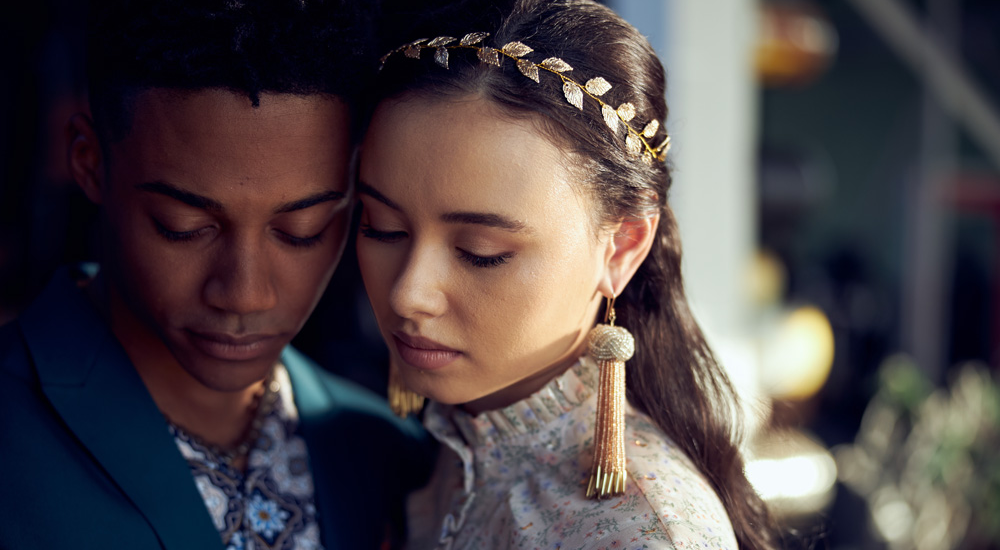Reading Romeo and Juliet is a rite of passage at this point. Maybe you read it in middle school/high school/college. You probably watched at least one adaptation. Maybe the 1968 version directed by Franco Zeffirelli or Baz Luhrmann’s 1996 version with Leonardi DiCaprio and Claire Danes. The great thing about Shakespeare’s most famous play is that it’s a cultural touchstone. Everyone knows the basic plot points and the iconic lines. Director Carey Williams takes full advantage of that familiarity in R#J, a modern retelling of the star-crossed lovers told entirely through the small screen of a smartphone. (It should be noted that the hashtag in the title is actually a heart emoji.) This refreshing and creative take starts fun but eventually, its gimmick turns stifling. It’s a fascinating form of adaptation only possible in modern times.
Here, the Capulet and Montague patriarchs (David Zayas and Moe Irvin) were friends before a tragedy pushed them apart. Romeo (Camaron Engels) and Juliet (Francesca Noel) are your typical teenagers, living in the moment, trying to be creative, and living on their phones. The true fun of an adaptation like this isn’t the story, but the creative choices made. It makes sense that fights are captured on Instagram and Facebook live. It really makes sense that Romeo and Juliet can cultivate an entire romantic relationship hidden from their parents, communicating through Instagram DMs and Spotify playlists.
It’s a bold choice to mix traditional Shakespearean dialogue with modern slang all while conversing in text messages and Instagram. Maybe too bold. It sometimes feels like you’re trying to decipher three languages at once - Shakespeare, English, and digital. It’s jarring how easy it is to understand what’s happening through a phone screen. The gestures and beeps and noises feel familiar and intimate like you’re spying on these characters whose entire lives are in these small rectangles. While these characters live in a Covid-free world, their strictly-digital communication mirrors so much of what we’ve gone through in 2020.
As inventive as its all-digital storytelling is, and even limiting themselves to a 90-minute runtime, R#J predictably runs into some roadblocks with its gimmick. Jumping on Instagram live to capture more kinetic scenes only takes you so far, particularly when it comes to more intimate scenes in the final act. The mix of communication styles eventually grows weary while your brain works overtime to catch every detail, every swipe, to make sure you don’t miss anything. Ambitious digital storytelling like this may be best suited for shorter formats to avoid fatigue.
Perhaps the best aspect of adapting a classic like Romeo and Juliet is that the story has been done so many times, you’re no longer limited to religiously sticking to every plot point. I truly cheered at some big plot deviations, just because it showed an eagerness to break the rules a bit. At the end of the day, Shakespeare’s plays stick around for their universal themes. While these star-crossed lovers aren’t 13 (thank goodness), their youth plays such an important role in championing hope, creativity, and resilience. At the end of the day, R#J may not go down as a classic adaptation of Shakespeare’s play but it’s bold and creative enough to deserve a place at the table. Because, of course, a rose by any other name would smell as sweet.

